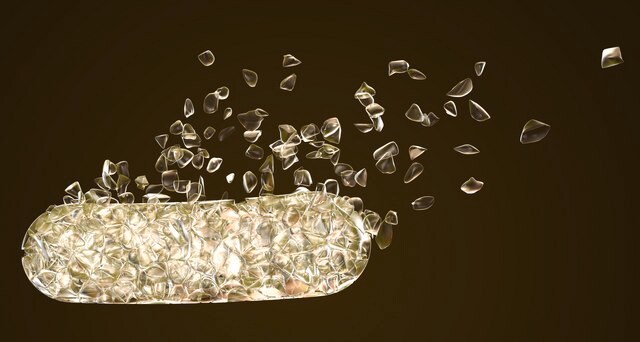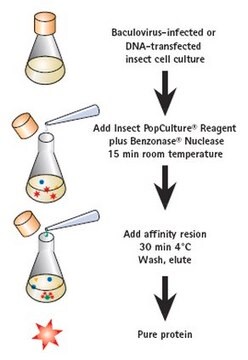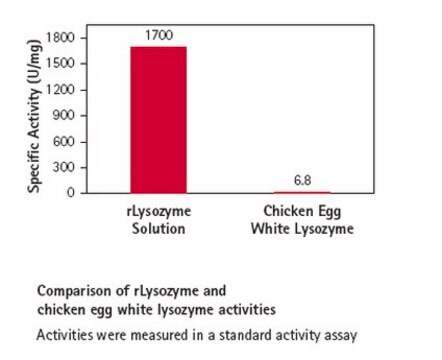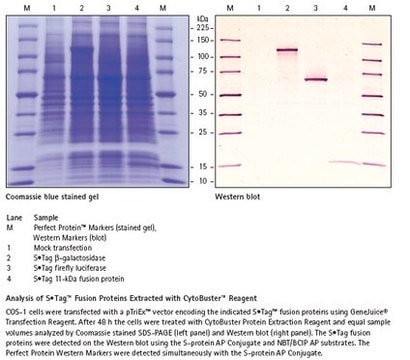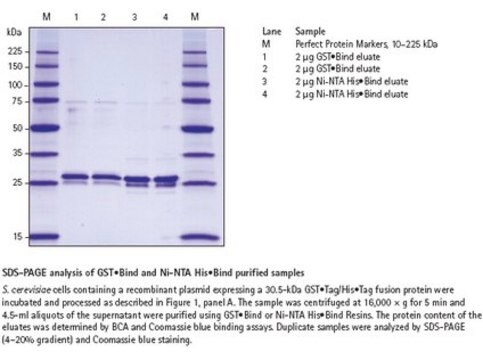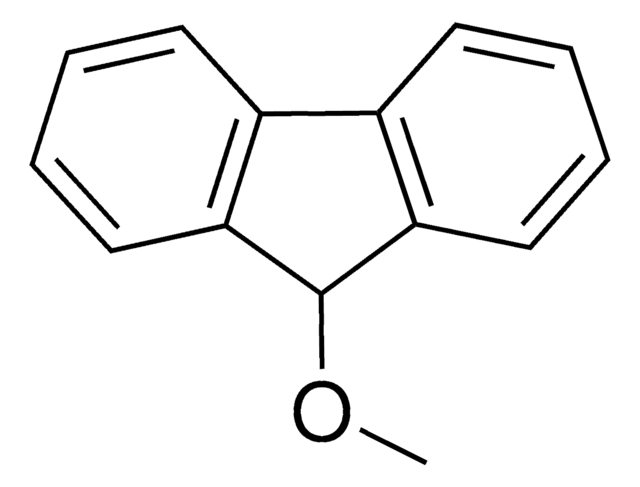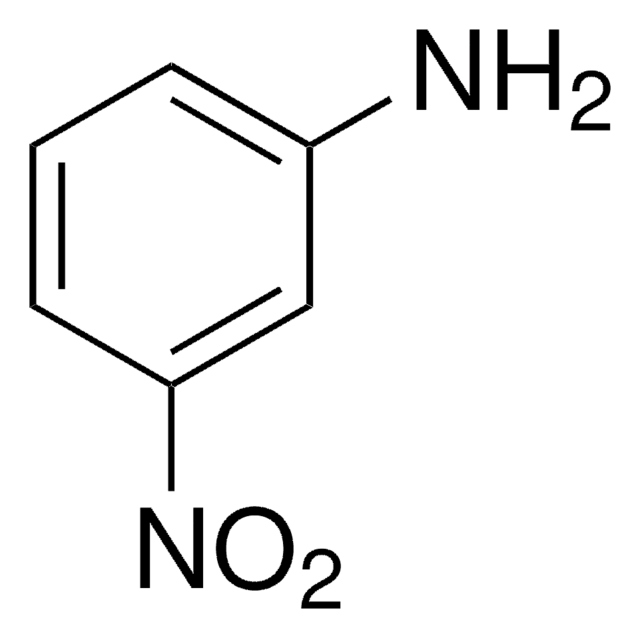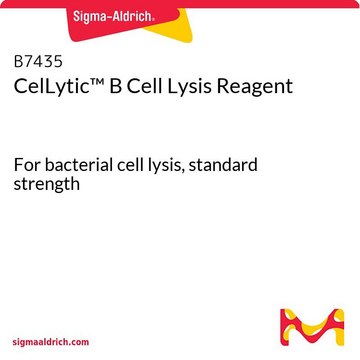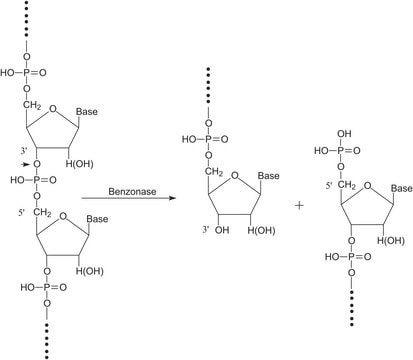71092
PopCulture® Reagent
Synonim(y):
Odczynnik do ekstrakcji białek z pożywki hodowlanej E. coli
Zaloguj sięWyświetlanie cen organizacyjnych i kontraktowych
About This Item
Kod UNSPSC:
41106511
NACRES:
NA.77
Polecane produkty
Formularz
liquid
Poziom jakości
producent / nazwa handlowa
Novagen®
warunki przechowywania
OK to freeze
Warunki transportu
ambient
temp. przechowywania
10-30°C
Powiązane kategorie
Opis ogólny
PopCulture Reagent* is a buffered mixture of concentrated detergents formulated to extract proteins from E. coli cells directly in their culture medium. Using this method, cell culture, protein extraction and purification performed in the original culture tube or multiwell plate. PopCulture perforates the E. coli cell wall without denaturing soluble protein and protects protein from the pH extremes produced in high density culture media. Recombinant proteins can be assayed directly or purified by adding an affinity matrix, washing the matrix:target protein complex to remove culture medium and cellular contaminants and eluting the purified protein from the matrix. Purification of fusion proteins from total culture extracts has been demonstrated using both IMAC and GST affinity chromatography methods (1).
To further enhance the PopCulture purification procedure, lysozyme and/or Benzonase® Nuclease may be added. Lysozyme cleaves a peptidoglycan bond in the E. coli cell wall, enhancing cell lysis and increasing the yield of protein (1, 2). Proteins may be expressed in a host encoding T7 lysozyme (pLysS host) or exogenous lysozyme may be added after the PopCulture Reagent. Benzonase Nuclease may also be added to degrade endogenous nucleic acids that may interfere with purification due to high viscosity.
The PopCulture protein purification procedure is ideally suited to high throughput (HT) robotic processing of samples for proteomics research or any application that would benefit from the increased speed and convenience. The magnetic agarose capture resins (e.g. GST•Bind<TMSYMBOL></TMSYMBOL> Magnetic Agarose Beads, His•Bind<TMSYMBOL></TMSYMBOL> Magnetic Agarose Beads) are optimal for HT applications since the entire procedure can be performed in a single tube without the need for columns or centrifugation.
*patent pending
To further enhance the PopCulture purification procedure, lysozyme and/or Benzonase® Nuclease may be added. Lysozyme cleaves a peptidoglycan bond in the E. coli cell wall, enhancing cell lysis and increasing the yield of protein (1, 2). Proteins may be expressed in a host encoding T7 lysozyme (pLysS host) or exogenous lysozyme may be added after the PopCulture Reagent. Benzonase Nuclease may also be added to degrade endogenous nucleic acids that may interfere with purification due to high viscosity.
The PopCulture protein purification procedure is ideally suited to high throughput (HT) robotic processing of samples for proteomics research or any application that would benefit from the increased speed and convenience. The magnetic agarose capture resins (e.g. GST•Bind<TMSYMBOL></TMSYMBOL> Magnetic Agarose Beads, His•Bind<TMSYMBOL></TMSYMBOL> Magnetic Agarose Beads) are optimal for HT applications since the entire procedure can be performed in a single tube without the need for columns or centrifugation.
*patent pending
Ostrzeżenie
Toxicity: Irritant (B)
Inne uwagi
1. Grabski, A., Drott, D., Handley, M., Mehler, M. and Novy, R. (2001). inNovations13, 1–4.
2. Inouye, M., Arnheim, N. and Sternglanz, T. (1973). J. Biol. Chem.248, 7247.
2. Inouye, M., Arnheim, N. and Sternglanz, T. (1973). J. Biol. Chem.248, 7247.
Informacje prawne
This product is covered by EP Patent 1,432,822 owned by EMD Chemicals Inc. or its Affiliates.
Benzonase is a registered trademark of Merck KGaA, Darmstadt, Germany
NOVAGEN is a registered trademark of Merck KGaA, Darmstadt, Germany
POPCULTURE is a registered trademark of Merck KGaA, Darmstadt, Germany
Ta strona może zawierać tekst przetłumaczony maszynowo.
Kod klasy składowania
10 - Combustible liquids
Klasa zagrożenia wodnego (WGK)
WGK 3
Temperatura zapłonu (°F)
Not applicable
Temperatura zapłonu (°C)
Not applicable
Certyfikaty analizy (CoA)
Poszukaj Certyfikaty analizy (CoA), wpisując numer partii/serii produktów. Numery serii i partii można znaleźć na etykiecie produktu po słowach „seria” lub „partia”.
Masz już ten produkt?
Dokumenty związane z niedawno zakupionymi produktami zostały zamieszczone w Bibliotece dokumentów.
Klienci oglądali również te produkty
Nasz zespół naukowców ma doświadczenie we wszystkich obszarach badań, w tym w naukach przyrodniczych, materiałoznawstwie, syntezie chemicznej, chromatografii, analityce i wielu innych dziedzinach.
Skontaktuj się z zespołem ds. pomocy technicznej